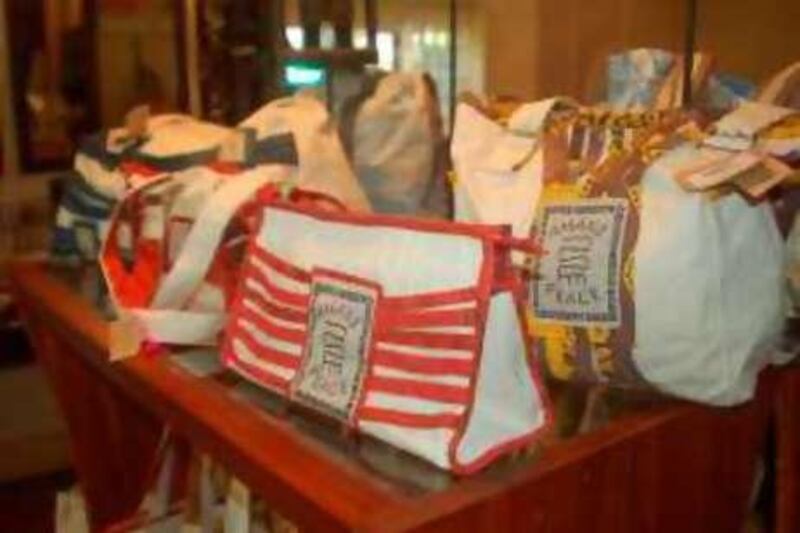NAIROBI // Veronica Lulua fled her village in southern Sudan in the early 1990s when war was raging between the northern Sudanese government and southern rebels. She came to neighbouring Kenya as a refugee and made her way to Nairobi, the capital, without any money or trade. Living in poverty and taking care of five children, she was discovered by an American missionary who was starting a sewing co-operative for marginalised women.
In 1996, Ms Lulua started working at Amani ya Juu, where she learnt how to sew, was paid a fair wage and had the support of a community of women. She has since become a trainer and mentor to other women. "I had no job before," Ms Lulua said. "Because of the help I got from Amani, I am able to pay my children's school fees. I am happy because I am able to train others and see them change like I was changed."
Swahili for "higher peace", Amani ya Juu is one of many organisations across Africa that are trying to lift the continent out of poverty by empowering women. In Africa, there is a large economic disparity between men and women, according to the UN Development Fund for Women. "Women in Africa continue to face enormous obstacles," a UN report on women in Africa said. "The material conditions under which most women live and work continue to deteriorate in many countries due to economic and social decline, wars and conflict, and the spread of Aids. Women constitute the majority of the poor and the illiterate in both urban and rural areas in Africa."
Many African women are forced into marriage as teenagers. Some are forced into prostitution. Women form the backbone of African economies doing much of the labour, yet they still see little financial gain. Amani ya Juu employs 100 women to make clothing, handbags and jewellery in a workshop in a quiet, shady Nairobi neighbourhood. The women come to Amani ya Juu from backgrounds of extreme poverty. Many are refugees from war-torn countries such as Sudan, Somalia and Democratic Republic of Congo. They are taught how to sew, but more importantly, they gain confidence and a sense of self-worth.
"It gives them a sense of dignity," said Mary Maina, the country director of Amani ya Juu. "They have a place to go, a healing community." The women are paid twice the local minimum wage. They learn how to stitch quilts, dresses and place mats. After four years, the women complete the programme and leave the organisation. New women join each year. Women who leave the programme often start their own sewing co-operatives in impoverished communities. Some Rwandan and Burundian refugee graduates of Amani ya Juu went back to their countries and started similar projects training and mentoring women.
"It makes quite a difference in women's lives," Ms Maina said. "It meets their basic needs and transforms their livelihoods." Most of the women are given a sewing machine. They work to repay the cost of the sewing machine. This type of microcredit is becoming a popular way of empowering women across Africa. Organisations in many African countries have started lending small amounts of money to the poor entrepreneurs to start small businesses.
The loans of as little as US$25 (Dh92) are usually paid back and have a tremendous impact on people's lives. "Microcredit projects are designed to allow women to have money, which allows them then to make choices about their children's education and their children's health care," said Una McCauley, a UN official in Togo, where the world body has a microloan project. Amani ya Juu products are sold in an upscale boutique in Nairobi and many of the products are exported to and sold in the United States. The women are paid from the sales of the products and the administration staff salaries are funded by donors.
All of the products are fair trade, a marketing buzz word that gives the consumer peace of mind that they were not made in a sweatshop. Some of the women write their personal stories to be included with the product. This way the consumer can learn about the woman who made her new purse and how the purchase improved her life. Amani ya Juu has improved Jerita Ayieta's life. Four years ago, she was living in poverty in western Kenya. Through the Amani ya Juu programme, she said she has not only gained economically, but spiritually as well.
"I used to wash clothes for people just to get by," she said. "Now I live in a good house. The programme has really changed my life completely. It has helped me to have inner peace." mbrown@thenational.ae





